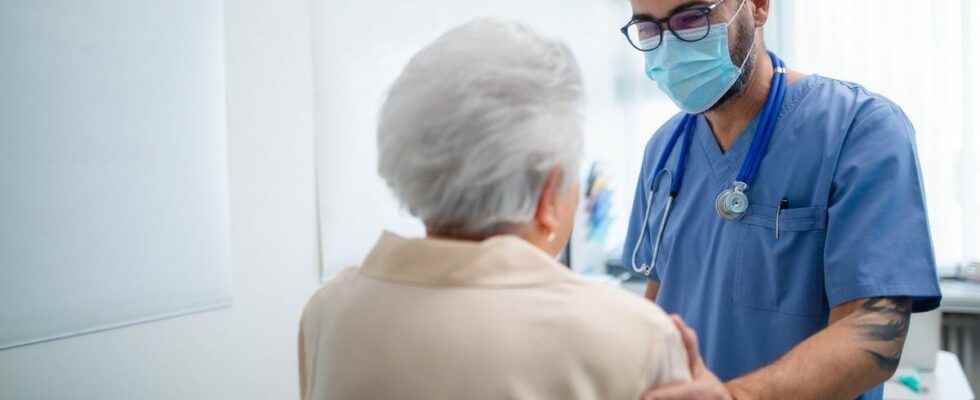Published on
Updated
Reading 2 mins.
in collaboration with
Dr Gérald Kierzek (Medical Director of Doctissimo)
Medical validation:
July 16, 2022
The 7th wave of coronavirus continues to climb in France. According to Public Health France, hospital admissions of patients infected with the coronavirus increased by almost 20% last week. Should we fear a rebound? Update with Dr Gérald Kierzek, emergency doctor and medical director of Doctissimo.
Thursday, July 14, during its epidemiological update, the National Public Health Agency presented grim figures. Over the period from July 4 to 10, an increase in hospital and critical care admissions was noted.
Hospitalizations: those over 90 are concerned
While the French president said on TF1 that the peak of the seventh wave “was being passed”the number of hospitalizations continues to increase.
Certainly, the number of new cases has decreased. But this gradual slowdown in the incidence rate does not prevent the French from ending up in hospital: according to Public Health France, admissions were “up sharply” : + 25.9% compared to the previous week (i.e. 8,574 new hospitalizations in 7 days) and + 29.3% in critical care (i.e. 816 new admissions in 7 days).
Same thing on the side of deaths: the health agency has recorded 386 deaths over the last 7 days, or + 30.8% in 7 days.
These new hospitalizations seem to particularly affect the over 90s.
In this context, Public Health France stresses that the number of vaccinations must increase “to improve the vaccination coverage which remains insufficient, especially among the oldest who, this week, had high hospitalization rates”. Currently, only 37.1% of people aged 80 and over and 44.1% of residents in nursing homes have received a second booster dose.
Faced with these figures, Dr. Kierzek nevertheless wants to be reassuring:
“The rate of hospital admissions naturally varies from day to day, especially in summer (problems of staying at home, heat wave)… without making the headlines. To date, there is a just under 1,200 critical care patients in 20,000 beds and emergency room visits are down. Omicron sub-variants lead to fewer hospital visits than previous variants”assures the emergency doctor, before adding that “people hospitalized directly because of Covid-19 are few. They are mostly admitted “with” the virus (decompensation of an underlying disease, or a positive test during hospitalization for another reason, etc.). The tension is nevertheless likely to be significant this summer due to the chronic crisis of the hospital (closing of beds, lack of staff…)”.
Consult a GP online
Who says summer, says meetings, barbecues and other seasonal pleasures. Contexts conducive to the spread of SARS-CoV-2, which does not take a break during the holidays.
To limit the spread of the epidemic and protect the most vulnerable, Public Health France recalls the importance of barrier gestures, such as:
- Hand washing (after each outing, after blowing your nose, coughing or sneezing, before preparing meals, serving them or eating, etc.);
- Ventilation (each living room should be aired several times a day: 10 minutes every hour if possible);
- Wearing a mask (it is particularly recommended in closed places, in family or friendly gatherings and in peak hours);
Of course, this advice remains complementary to vaccination, which remains effective against severe forms of Covid-19.
